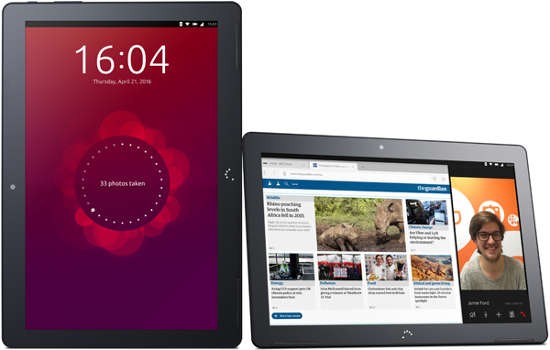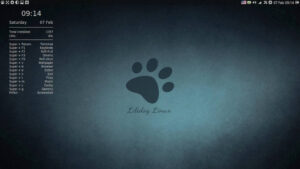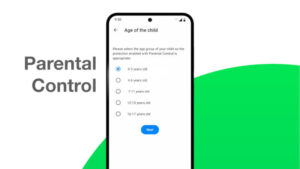Will Canonical’s outside the box thinking redefine the mobile experience?
We’re finally going to see what Canonical can do with mobile. There’s good reason to be cautiously optimistic, as there are at least three potential game changers for the mobile world in the new Aquaris M10 Ubuntu Edition tablet due to be released in March.

The BQ Ubuntu phone, the first of which was released about a year ago, has turned out to be only a tease of what is to come, especially here in the U.S. where the phone has been mostly a no show and not available for purchase. Even after it became available in the U.S., the device is a mostly a brick, offering only 2G connectivity and then only on certain carriers. But at least those who have one can walk around with GNU/Linux in their pocket — even if it’s only useful at home, McDonalds, Starbucks or someplace else with Wi-Fi.
GNU/Linux, of course, is the most obvious difference between Ubuntu’s mobile offerings, phone or tablet, and those from the usual suspects. The upcoming tablet, however, has a big feature that’s been MIA from the phones so far, and depending on how well it’s implemented and how savvy the marketing folks are, it could completely change the mobile market.
The feature is something Canonical is referring to as “convergence” — all lower case and without any noticeable trademark hype — which pretty much offers exactly what was promised in 2013’s failed attempt to raise $32 million to produce a prototype phone, Ubuntu Edge. At first glance, a mobile device with convergence has all appearances of a typical mobile device, or as typical as a device not running Android or iOS can be, with a pretty standard touch friendly mobile interface.
There’s one big difference, however. The interface automatically switches to a full featured desktop — in this case Unity — when coupled with a Bluetooth mouse and keyboard. Add a monitor, and voilà!, the tablet is suddenly a fully functioning desktop, ready to run any desktop app, say LibreOffice so the user can write a letter, work on that novel, or get some work done on a spreadsheet that the boss is insisting needs to be finished yesterday.
| Aquaris M10 Ubuntu Edition Specs |
|---|
|
This has the potential to grab a big slice of the mobile pie. With this tablet, casual users would no longer need to invest in multiple computing platforms because their mobile device can do it all — and it’ll do so by acting like a tablet when they need a tablet and like a desktop when that’s what’s required. It’s the ultimate convertable, and if Canonical implements and markets this right, convergence technology might very well be the norm for all mobile devices going forward.
Debuting the convergence feature on a tablet instead of a phone is probably a good marketing strategy. Not only does a tablet not need to be compatible with a plethora of wireless providers’ systems, making inventory less of a problem, it can also be marketed on several tracks, as it can be sold as a stand-alone tablet or bundled with keyboard, mouse and case as a “convertable,” not unlike Microsoft’s Surface — only better.
The trouble is that apps for Ubuntu mobile devices are few and far between — a fact that you can be sure both Google and Apple are sure to exploit with some “where’s the beef” FUD. According to the smart money guys and gals on Wall Street, having a healthy app ecosystem already in place is essential to the successful launch of any new mobile operating system.
This thinking goes back to the day Apple introduced the iPhone and sales took off, contrary to Wall Street’s predictions. Its fabulous success was attributed to the availability of apps, which transformed the device from being merely a better and more powerful version of Blackberry to being a Star Trek-esque portable computing device that could do practically anything.
| [yop_poll id=”6″] |
When Google first introduced Android, marketing experts predicted its doom because it didn’t come complete with 100,000 or more apps, which was seen as essential to compete with Apple. In Google’s case, it was “build it and they will come,” but no attempts to launch an alternative mobile operating system since have been able to duplicate that, not even Mozilla with Firefox OS, which attempted to make designing native apps almost as easy as learning HTML.
With Google and Apple having a stranglehold on mobile, app developers aren’t going to go through the expense of porting an app to a new operating system that doesn’t have a sizable user base and probably never will. If you don’t believe me, ask Microsoft. They’ll explain it to you. And while it’s true that any operating system can be made to run Android apps non-natively, that’s never worked in the past, which is why Microsoft gave up on the idea almost before implementing it.
To its credit, Canonical’s done some out of the box thinking and has come up with a novel workaround which might even be a selling point, especially on tablets, where the larger screen size, coupled with the fact that the tablet is usually used in the home, makes mobile apps not nearly as necessary.
Essentially, they’re saying, “We don’t need apps.” They’ve come up with “scopes,” another lower case and not trademarked idea offered without hype. Scopes are basically dashboards on the mobile home-screen that display related content from different providers on the same screen. In one example I’ve seen, a music scope seamlessly offers music from online services alongside music stored locally on the device.
According to an article published on OMG! Ubuntu in January, 2015, BQ’s Ubuntu phones came with at least six scopes out-of-the-box when first released: Today (with weather, favorite contacts, current calendar appointments and the like), Nearby (with information from sources such as Yelp and TimeOut, making it easy to find something that’s…well, nearby), News (from a variety of sources), Music, Photo (with images culled from Facebook, Instagram, Flickr, and presumably, local storage), and Video.
“We’re producing an experience where content and services come directly to the screen in an unfragmented way,” is how Canonical’s vice president of mobile, Cristain Parrino, explained it. “It makes for a much richer and faster user experience.”
Scopes still require development from content providers, but are much easier and less time consuming to develop than Android or iOS apps, making it easier for Ubuntu to get providers on board. Ubuntu marketers might also add that they’re a “value add” that the other mobile operating systems lack.
“Scopes can be developed for a fraction of the cost of a traditional app,” Parrino has said. “They also have the benefit of being integrated to the phone’s core experience.”
None of this matters, of course, unless Canonical can spark consumer interest, and entering the market with a mobile device that’s not powered by Android or iOS is just about exactly as easy as making 2016 the year of the GNU/Linux desktop. It can be done, however. One only has to look to Google, which upset one apple cart with Android and another with its Chromebook.
Time will tell if the launch of the Aquaris M10 Ubuntu Edition tablet will turn out to be a momentous occasion or just another soon to be forgotten event. I’m hoping that March will be a month that’ll go down in mobile history. I’m rooting for a “Go, Linux, go. Go, go, go” sort of moment.
We’re currently in the midst of our 2016 Indiegogo fundraising drive. Your support is crucial. Won’t you please visit our fundraising page and make a contribution to support FOSS Force?
Christine Hall has been a journalist since 1971. In 2001, she began writing a weekly consumer computer column and started covering Linux and FOSS in 2002 after making the switch to GNU/Linux. Follow her on Twitter: @BrideOfLinux












With huge respect, I think the received wisdom surrounding apps, which is repeated here, is incorrect.
The truth is, most of the time, people don’t use more than a couple of dozen apps – even when you add phone and PC use together. And of the ~250,000 apps in Apple’s Store, 80% haven’t been downloaded in significant quantities. Of course, people like certain apps for whatever reason, and the absence of that app can be a deal-breaker to many. However, Linux users know that there’s always an Open Source alternative that’ll do the job at least as well, if not better! Why use WhatsApp, when there’s Telegram?
But also, there are no shortages of apps in the Linux eco-system, though perhaps not the tin-pot-Toy-Town apps associated with smartphone use… The chance to use full-blown LibreOffice, or Firefox & Thunderbird ain’t nothin’. And here’s the real benefit (to Canonical, app devs, and consumers) – convergence refers to Canonical’s code:
– the same code on everything;
– build the same app for all devices, once;
– have the same user experience and features no matter what you’re working on.
You’re right though – hitherto, Ubuntu phone has just been a device for developers and enthusiasts to test and report bugs. Neither Canonical, bq or Meizu have pushed them much beyond the horizon of the Ubuntu geek, and for good reason: Canonical didn’t want to offer a buggy experience.
And I think Canonical’s onto something with Scopes, too. Chatter amongst tech seers seems to suggest that we’ve reached “Peak app”. That something new and better is just around the corner. Maybe Ubuntu phone is giving us a glimpse of what that might be.
I’m an FSF member, I want free software to conquer the world. But I just don’t see this getting any traction.
If the battle with Microsoft has taught open source users anything, it is that most people using computers won’t switch away from what they already know. The iPhone and Android were fluke exceptions partly spurred by the fact that the mobile operating systems were uncompetitive. iPhone came in and blew Blackberry and Symbian and Palm away. Then Android came in and targeted the same market but at any price point instead of just the $600+ range.
But now desktop computing and mobile computing is saturated with offerings the average person that doesn’t care about free software will perceive as competent and competitive. And the failure of Windows Phone is proof that such a market is incredibly hard to penetrate. 95% of the population cares nothing for open source, and even with an otherwise decent product and billions in promotions, Microsoft couldn’t establish a strong presence.
I wanted Firefox OS to take the world by storm and I would love Ubuntu Touch to take the world by the storm. But I don’t see either happening.
@ Mike S.
Even after three years, the Ubuntu phone platform is nascent, but Ubuntu phone is already a trend-setter, with convergence and scopes and all the rest of it. But will Ubuntu phone catch on? It might!
– Scopes offer something intuitive and fresh.
– The PC/Phone thing might play well in emerging markets as well as in enterprise.
– And, if the community can provide the “must-have” apps to sit alongside the Linux canon of productivity apps, the platform has at least as much to offer as the competition.
Unlike Mozilla, Canonical seem to have a solid business platform to allow for development: and with convergence, developing one area of the code, enriches all the code.
There’s an image by Banksy of the carcass of an iPhone turned into a prison, with an escapee making a dash for it. There will come a point where people tire of the restrictive app-grid, and the single-tasking norm of “smartphone” use.
@3arn0wl,
– The “scopes” feature is basically a copy of the Windows Phone “hubs”, which offer the same set – on Windows Phone you can, for example, view your photos from the onboard camera, Facebook, Flickr, etc… etc… all in one photo hub. You can look at your contacts from your phone address book, Twitter, Instagram, and Gmail all in the people hub. “hub” and “scopes” are a great feature – but if they didn’t make headway before, I don’t think they will now.
– Convergence is already underway. Firefox OS has it implicitly. Some (all?) newer Android tablets offer split screen multitasking and more apps support advanced features and keyboards. And the whole point of the – admittedly terribly mismanaged – Windows 8 ‘Metro’ debacle was to make one Windows user interface across mobile and desktop, and phones and tablets you could use as desktop devices!
– Last and most important, Android and iOS are not sitting still. Any great idea from a competitor can be adopted.
In the particular case of the Aquarius M10, the hardware is equivalent to the $180 ASUS Zenpad. Maybe that’s smart, it makes it more affordable. But I won’t buy a 10 inch tablet with a 1280×800 display and 2GB of RAM.
I hope you’re right and I’m wrong, and Ubuntu Touch or something else free software from top to bottom is the future of computing.
In such a cut-throat market, of course everyone’s looking at each other’s ideas, and finding ways to implement them. Apparently Apple have also integrated the intuitive aspect of Scopes into Siri.
Convergence of code wins out over the Continuum in ways I’ve already stated. Morphing from phone to full blown PC also wins out over a purely HTML experience too, imo, though I admire what Firefox were doing.
The good thing is that it doesn’t really matter to Canonical’s business whether the phone takes off or not. However, Canonical recognized years ago that the computer market is moving towards ever-smaller devices, many of which have touch screens. They had little option to develop Touch, if they wanted a piece of that action.
“However, Canonical recognized years ago that the computer market is moving towards ever-smaller devices, many of which have touch screens. They had little option to develop Touch, if they wanted a piece of that action.”
I agree. Even if Canonical managed to wrest a big piece of traditional desktops from Microsoft, it appears the future of personal computing outside of a few specific areas is mobile devices and converged devices.
Would only consider purchasing this if you can switch the desktop to something other than unity.
Regardless of how much Ubuntu want to force it on people, I find the window frame buttons being on the left side is just plain awkward.
I’m with Justniz on the desktop.
Unity is pretty much the last interface I would want to use even on a tablet. XD I’d rather use KDE… speaking of aren’t they making a mobile desktop too? That one could actually be really exciting. I mean I’ll pick LXDE and xfce any day and any task on a desktop but I’d use KDE on a tablet one of the biggest thing I don’t like about KDE is how long it takes to get thigns shrank down to a good desktop size. Of course I’ve never had a 4k monitor so maybe I’d like KDE more on desktop if I had one of them as Well, since I’m not sure how well LXDE would scale in 4k…
Pfff… After seing the title, I didn’t even bother reading the article…
Have to agree with the KDE option. But from a technical perspective, that would require KDE to actually have a tablet mode the way Unity does, and I don’t know if it does.
Remember, though, these are first and foremost mobile platforms. I can tolerate Unity Desktop Mode if I’ve also got Unity Tablet Mode and all the goodness that goes with that. To have a full-blown “desktop tablet computer”, complete with LibreOffice and all the other Debian/Ubuntu repository options is really a great thing.
For phones, they’re going to need two major apps to be competitive in that space: 1.) WhatsApp, and 2.) Skype. Sucks, but it’s true at this point. It would help for tablets, too, being mobile devices, but it’s not as critical in the tablet space.
–SYG
@ SYG
I don’t know how true this is, but one of the excuses made for the stalling of app development on Windows phone was the fact that developers got tired of having to rewrite their code because Microsoft kept making changes to the OS. Hopefully Ubuntu won’t suffer this problem – though I don’t know enough about how Unity 8 and Mir relate to the main body of the OS.
Skype is of course already available for Ubuntu desktop, so it should become available for the phone too. I don’t know what’s stopping WhatsApp from developing an app. Don’t they want as wide an audience as possible?
And it’s really not right that a few app developers get to decide whether a platform flies or crashes! What power! Maybe, Canonical will just blow that off and say, “this is what Ubuntu phone has to offer”…
Let this converged group of esteemed FOSS Force regulars sit with me a minute and talk about applications. As an aside, I am gaining happiness by the day, with the people who I speak with and about in these columns. The intelligence and wit among you folks makes it a pleasure to hang out with you. I hope our association is a long and productive, if not an entertaining one.
But yeah…about those apps. While my business made the switch to a 100% Linux and FOSS shop in 2004, I stubbornly held onto my Windows XP machine at home. With all the dangers that lurked in that environment, I still chose to fend off those dragons instead of doing the wise thing and make my home computer into a Linux machine. Why?
Shortkeys.(http://www.shortkeys.com/)
I type a lot. In that I spend a good 5 hours of my day typing, and I now type at 91 wpm with my Carpal Tunnel corrected, I found that using a reliable macro application essential to my workflow. Shortkeys is all of that and more. It even followed the formatting of various places I typed specific things. When I evoked that specific key combination, Shortkeys knew to type my name and address in the proper envelope or shipping format. Change that address to my workplace instead of home? A simple macro assigned to that made it work beautifully. Even my private email address (mis-represented for security reasons) helios at fixedbylinux dott komm, can be a PITA when I have to type it a dozen or more times a day.
So you can see why I did not want to make the switch. I have looked extensively for an application that can match the Windows Shortkeys software, but it does not exist…not in the way I need (or maybe just want) it to work.
Eventually, yes…I did become a 100% Linux user at home. A couple of months ago, I revisited my search for a shortkeys replacement when my Carpal Tunnel became debilitating. There are a couple promising applications but in true Linux/FOSS behavior, those are an absolute gold star pain in the ass to get working. There’s really no excuse for our apps being this difficult to implement. I guess the developer’s “good enough for me” is the golden standard these days.
So I took the long way around to explain why many people justify not switching their work environment due to the lack of a needed application. One program can bring that migration to a screeching halt, be it on a mobile device or a desktop computer.
Can we please keep this thread focused on the Ubuntu phone?
I bought a Nexus 7 (2013), which I put Ubuntu touch on so I could keep up with how the system was evolving. This was after the Vivaldi failed and after the Jolla Tablet failed. I think a converged device will be fantastic, with the ability to run the full OS with keyboard and mouse; however, the device still needs to be usable when in tablet/phone mode. Maybe the converged code will lead to mobile versions of the desktop apps. I am cautiously optimistic.
” Christine Hall
February 8, 2016 at 4:42 pm
Can we please keep this thread focused on the Ubuntu phone?”
The title focuses on the TABLET. The phone, tablet and desktop, are what they wanted to do with Ubuntu a few years back; One desktop, across all your devices.
If they continue in that respect, apps, programs, etc, are all a big part of that, as they will all have to be able to sync across (probably through some cloud account).
Not seeing how the app talk isn’t strongly connected. (not just hardware driving the market)
@Randal I agree. Talking about apps is completely connected to the Ubuntu phone.
@Randal – I was going to say much the same thing!
This article’s about a rather mediocre-specced Microsoft Surface wannabe. It’s not got any cellular capabilities – not even a SIM card slot for data transfer, so far as I know.
There are other, more powerful offerings running Ubuntu out there – notably a tablet from MJ Technologies. But this is Canonical saying, “Hey look! We’ve got full – converged – Ubuntu running on a non X86 architecture!”
Two critical features of iOS, Android, and Windows Phone applications:
– ability to automatically switch to low resource mode and resume when return to screen
– ability to automatically save status and exit when the system needs to free resources
That’s essential for devices constrained by low available RAM. I suspect – but do not know for sure – that Canonical has implemented something similar for all applications custom built for Ubuntu Touch.
But it would take a lot of work to add those features to a web browser, Libre Office, etc… So my first guess is that this tablet and its 2GB of RAM will operate well with Ubuntu-Touch only applications because it will keep shutting off anything that doesn’t , but when you use it in desktop mode it’s going to start swapping hard to disk in a hurry unless you manually close applications and browser tabs you’re not using.
@Mike S.
iirc The plan was that apps which are running in the background, were not to take any resources. I don’t know whether there are now any exceptions to that, but my guess is that there might need to be. However, I can say that I run Ubuntu on a desktop happily/smoothly enough on 2GB RAM.
Hmmmm, if it runs Ubuntu it might be able to run a real
Linux distro.
When I hear I can put LMDE on it I will buy one.